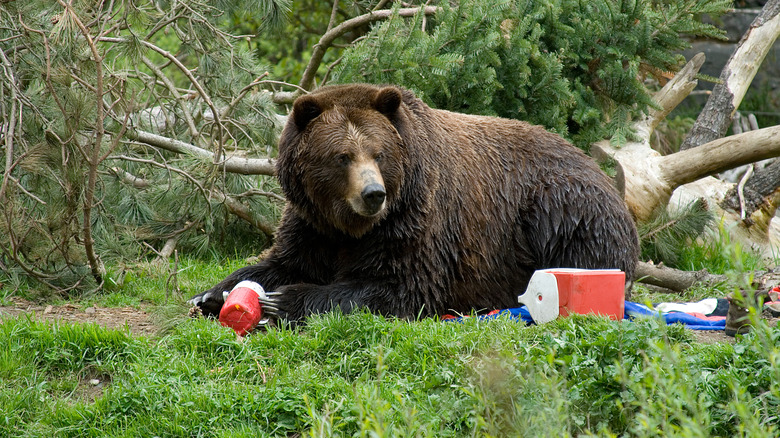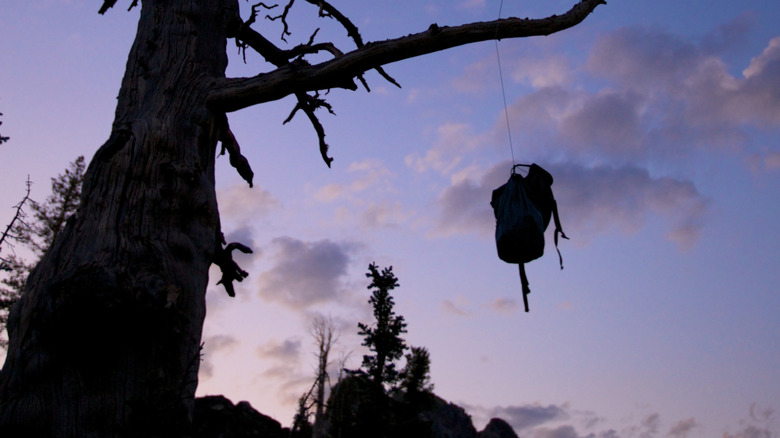How To Keep Your Camping Food Safe From Bears
We may receive a commission on purchases made from links.
It might be fun watching Yogi Bear and his buddy Boo Boo scheming to swipe "pic-a-nic" baskets, but in real life, as opposed to vintage cartoons, bears are unwanted visitors you won't want anywhere near your campsite. Human food is not healthy for bears and easy access to it causes them to change their natural behavior — the presence of these animals isn't too good for people, either. Therefore, it's important to keep your food — including scented items like soaps and sunscreen and garbage — where bears can't get at it.
One way to keep your food safe is to have it within reach. A bear probably won't be desperate enough to come right up to you to take it away, and you certainly should not get close to hungry bears intentionally. You also shouldn't keep food in your tent — but if you're car camping, you can store it in the vehicle. Even so, your locked car isn't bear proof. To deter these animals, you'll need to keep the windows closed, make sure the interior is clean, and cover food, shopping bags, or coolers so they're not visible. Certain parks may provide food storage lockers, and if these are available, it's best to use them. If they're not, odor-proof bags can be your best friend; if a bear can't smell your food, it won't know to go after it.
Additionally, it's important to wash all dishes right away. Make sure all of your food and toiletry trash is disposed of in garbage containers some distance from where you're camping. Do not toss it into your campfire, since even burned food debris is still of interest to bears.
How to protect your food while backpacking
If you are camping in the backcountry and will be hiking in, you may not have access to lockers. In this case, bear-proof containers are advisable and may even be required by law. Any old container with a lid won't do, since these might be easy for bears to open or carry away. Bear-proof containers have been specially designed to prevent this from happening. Even so, they must be kept locked and should be placed on flat ground at least 100 feet away from where you're camping. You should also place any pots and pans you may have on top, since these will serve as an early warning that a bear is trying to tamper with your food. With any luck, the noise may startle it enough to abort the mission.
If a container is too bulky or heavy to haul along on your hike, another option may be to use a bear bag that you hang from a tree 15 feet off the ground and 10 feet away from the trunk. Something like this ultralight bear food bag hanging system works well.
Should you find yourself without the proper equipment, you can always try stashing your food in a rocky crevice that's difficult for a bear to reach. You can also hide your food off the trail where a bear is unlikely to see it. This method will only work, though, if you've either packed freeze-dried backpacking food that comes in odor-proof packaging or are using the aforementioned odor-proof bags.

